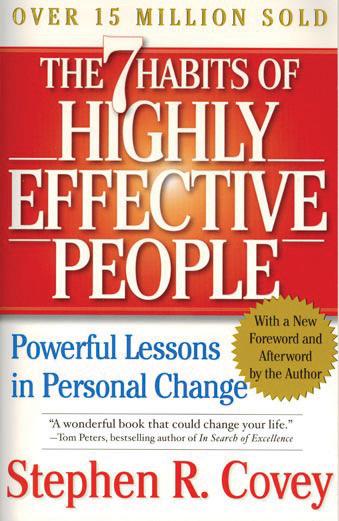The Seven Habits of Highly Effective Family Caregivers
Caring for seniors — a family affair for thousands of households across the United States — requires a special action plan when kids go back to school after the holidays. Nearly one-quarter of American adults (23 percent) currently provide companionship or assistance with daily living to an elderly parent or relative, according to a study for Home Instead Senior Care by Harris Interactive®.
While each family caregiving situation is different, stress is a com-mon denominator. 
Stress and time demands often increase during times of change, like after the winter break, when children prepare to go back to school and get involved with winter sports and other activities. “During the school vacation, children sometimes play an active role in the caregiving pro-cess, running errands and cleaning house for Grandpa and Grandma, or simply serving as a companion,” according to the report. “Many times, those grandchildren provide heartfelt support when seniors are ill or re-covering from sickness or surgery.”
“Not only do many families lose that extra pair of hands, but their children need more help as well,” said Suzanne Mintz, co-founder and president of the National Family Caregivers Association (NFCA). “Life is always easier on an even keel. When your norm is disrupted, as during times of transition, the stress levels go up until a new norm is estab-lished.”
Home Instead Senior Care sees an increase in the number of families caught in this gap each January, when return to normal activities throw their lives into turmoil again. People search outside the family when the pressures of homework, basketball and other activities become too much to handle. Outside caregivers can help seniors with meal preparation, housekeeping, errands and shopping, personal-care services, and other non-medical home care and companionship duties. Deciding what’s im-portant by creating a plan of action and prioritizing are the keys to helping families maintain their sanity, said leadership expert Stephen Covey, whose books, The 7 Habits of Highly Effective People and The 7 Habits of Highly Effective Families, have helped revolutionize how Americans manage their work and home lives. Covey said he sees particular stress among working women who are trying to juggle the care of seniors and children. “My basic response is you’ve got to really decide what is very important so that you can learn to say ‘no’ to what is not that important, even though it has the feeling of urgency,” Covey said. “If you can say ‘no’ guilt-free, that means you have a burning ‘yes’ about something that is more important.”
The 7 Habits of Highly Effective Caregivers
Stephen Covey partnered with Home Instead Senior Care to apply his 7 Habits to the unique role of a family caregiver.
• Be Proactive. Don’t react to the stress of juggling a child’s sched-ule and caring for your elderly loved one. Think and plan ahead to be prepared for this stressful time.
• Begin with the End in Mind. If family is what is most important to you, contribute your time, energy and talents to that end.
• Put First Things First. Plan weekly and daily as a family and indi-vidually so you’re focused and prepared to meet goals, appointments and obligations.
• Think Win/Win. Approach the idea of caring for youngsters and elderly parents, and balancing school and work with a win/win at-titude. Meet together to establish parameters (everyone’s roles and responsibilities) upfront so everyone feels good about the care situa-tion.
• Seek First to Understand …Then to be Understood. Listen empathetically with your heart and your ears to your children and parents when concerns arise and relationships may be strained. Try to understand exactly why Grandma is crabby.
• Synergize. Brainstorm to solve problems so that everyone feels a part of the so-lution. There are many ways to utilize our differences for the good of everyone.
• Sharpen the Saw. Strive to live, to love, to learn and to leave a legacy. To do that, a family caregiver must take care of himself or herself. They love being appreciated and valued. And when they feel how their grandkids look to them and listen to their wisdom, their whole world will change.”
Photo: Author Stephen Covey part-nered with Home Instead Senior Care to apply his 7 Habits to the unique role of a family caregiver.